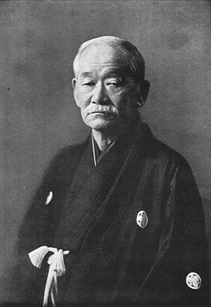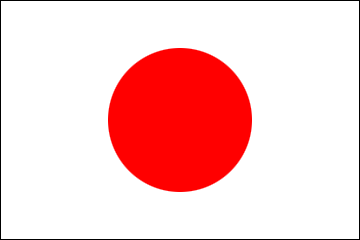Japanese Government (MEXT) Postgraduate Scholarships
MEXT Alumni Personal Experiences
Vishal Gor
Japanese Government (MEXT) Postgraduate Scholarship
PhD student in Biomedical Sciences at University of Tsukuba 2016 - present
I arrived at The University of Tsukuba in the spring of 2016, having gratefully been awarded the MEXT scholarship to pursue a Ph.D. in Biomedical Sciences, and this article describes my personal experiences on the benefits and challenges encountered when pursuing a postgraduate degree in the medical sciences at The University of Tsukuba.
 The University of Tsukuba, situated in Tsukuba city in the southern reaches of Japan’s Ibaraki prefecture, has a somewhat intriguing past. The University was founded in 1973 when its predecessor, the Tokyo University of Education (one of the oldest universities in Japan), relocated to the Tsukuba area. It consists of 9 different schools, which are further divided into 23 different colleges, ranging from fields as diverse as The College of Agro-Biological Resource Sciences to The College of Comparative Culture. A unique point in the history of the University is its founder and first president, Dr Jigoro Kano. Dr Kano was a pioneer of judo, founding the Kodokan Judo Institute in 1882, which was somewhat unusual for a president of a leading higher education centre at that time. Even more surprisingly, Dr Kano was a strong proponent of innovative reform, establishing a “free campus environment” with a strong emphasis on the development of scientific approaches and the fostering of inquisitive minds. Furthermore, he promoted inclusivity in education, and was the first educator in Japan who openly welcomed foreign students into his education establishment. Fast forward 47 years into the future and you have the current University of Tsukuba, which upholds many of Dr Kano’s admirable principles, albeit with some, perhaps unavoidable, shortfalls.
The University of Tsukuba, situated in Tsukuba city in the southern reaches of Japan’s Ibaraki prefecture, has a somewhat intriguing past. The University was founded in 1973 when its predecessor, the Tokyo University of Education (one of the oldest universities in Japan), relocated to the Tsukuba area. It consists of 9 different schools, which are further divided into 23 different colleges, ranging from fields as diverse as The College of Agro-Biological Resource Sciences to The College of Comparative Culture. A unique point in the history of the University is its founder and first president, Dr Jigoro Kano. Dr Kano was a pioneer of judo, founding the Kodokan Judo Institute in 1882, which was somewhat unusual for a president of a leading higher education centre at that time. Even more surprisingly, Dr Kano was a strong proponent of innovative reform, establishing a “free campus environment” with a strong emphasis on the development of scientific approaches and the fostering of inquisitive minds. Furthermore, he promoted inclusivity in education, and was the first educator in Japan who openly welcomed foreign students into his education establishment. Fast forward 47 years into the future and you have the current University of Tsukuba, which upholds many of Dr Kano’s admirable principles, albeit with some, perhaps unavoidable, shortfalls.
Dr Kano’s legacy of encouraging international students to join The University has continued flourishing over the years, and the University of Tsukuba boasts a large number of foreign graduate and postgraduate students, which significantly helps to mitigate some of the isolation students experience as a foreigner in Japan. Additionally, due to the social and academic melting pot of different cultures and backgrounds, students are continuously exposed to new viewpoints and concepts which challenge them to grow as individuals. A young researcher can take full advantage of this dynamism here due to labs (usually) having good funding coupled with the shocking ease of obtaining support and resources from providers in research-related industries of materials or services. To take just one example, the sequencing of a gene or specific fragment of DNA takes just a couple of days, at a very reasonable price, whereas the same experiment can sometimes take days if not weeks in Europe. The University also provides direct funding for students to grow and develop their scientific networks, and I have personally received grants from the University allowing me to travel abroad to international conferences, improving my networking and presentation abilities.
However, as with all things, the old adage that all that glitters is not gold is undoubtedly true as well. One of my personal biggest challenges faced when trying to adapt to the University of Tsukuba is the extremely difficult work-life balance. Many labs in the medical sciences (and other departments as well) enforce 6 working-day weeks and this, coupled with sometimes outrageous demands and expectations of output, lead to maintaining good mental health being akin to balancing on a knife’s edge.
My time at the University of Tsukuba has been a wonderful, albeit tumultuous, experience. The diverse array of people I have come into contact with and the numerous challenges I have faced both in the lab as well as out of it have enabled me to go from strength to strength in developing my character, with only a few setbacks being the cost. However, as Nietzsche said, “To live is to suffer, to survive is to find some meaning in the suffering”. Some aspects of graduate school life at the University of Tsukuba may indeed feel like endless suffering, but the opportunities for growth that result from it are great enough that one can take solace in them.
Photo: Dr Jigoro Kano
Source: Kyōiku Kenkyū (Study of Education), No.482, 1938, published by Shotō Kyōiku


